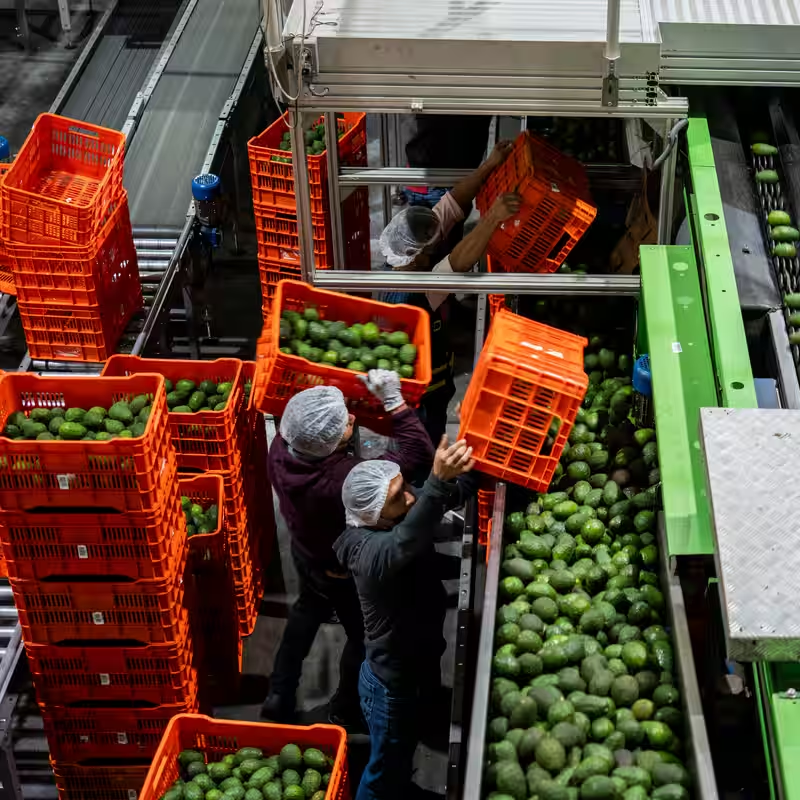Table of Contents
- The Dark Side of Your Guacamole
- How Avocado Demand Is Destroying Forests
- The New Certification Plan Explained
- Industry and Community Reactions
- Can This Plan Really Work?
- Sources
The Dark Side of Your Guacamole
That creamy avocado on your toast or in your Super Bowl guacamole might come with a hidden cost: deforestation, water theft, and even cartel violence in Mexico. Now, a groundbreaking certification program is trying to change that—by threatening to cut off noncompliant growers from the billion-dollar U.S. market.
For years, the explosive demand for Mexican avocados has fueled illegal logging, drained aquifers, and drawn criminal gangs into the lucrative trade. But a new initiative, backed by satellite tech and U.S. importers, is offering a lifeline to both forests and farmers—if they’re willing to play by the rules.
How Avocado Demand Is Destroying Forests
Since the U.S. lifted its ban on Mexican avocados in 1997, the industry has boomed—especially in Michoacán, which supplies over 80% of America’s avocados. But that success came at a steep environmental price.
According to a 2023 report by Climate Rights International, avocado expansion has cleared up to 70,000 acres of forest in Michoacán and Jalisco over the past decade. Mexican law requires federal permits to convert forestland to orchards—but none have been issued in Michoacán since the late 1980s.
Yet trees keep falling. Why?
- Cartels extort growers and control illegal land clearing
- Corrupt local officials turn a blind eye
- Avocado orchards use 4–5 times more water than native forests, drying up streams
- Communities lose access to clean water and ancestral lands
The New Certification Plan Explained
Enter the Guardián Forestal certification program—a voluntary but powerful system designed to trace avocados from orchard to supermarket shelf.
To qualify, packers must source only from orchards that meet two strict criteria:
- No deforestation since 2018
- No forest fires since 2012
The system uses near real-time satellite imagery—publicly accessible—so retailers and watchdogs can verify claims independently. “You don’t have to trust us,” says Heriberto Padilla, director of Guardián Forestal. “You can go directly to the data.”
Orchard owners can also get certified for a fee, with a portion of funds going back to local communities for conservation projects.
Industry and Community Reactions
Reactions are mixed—but change is already visible.
At Tanim Avocados, manager Luis Miguel Gaitán says some partner farms have been abruptly cut off from U.S. exports. “Producers are upset,” he admits. “But business is one thing—we need to leave something to our children.”
Environmental activists welcome the effort but call the 2018 deforestation cutoff too lenient. “Before this, we didn’t have anything,” says Nuria Yamada, a local activist. “Now, there’s at least a little light.”
Meanwhile, Mexico’s federal government and avocado exporters are drafting a mandatory national plan for 2026—but critics worry it may lack transparency.
Can This Plan Really Work?
Early signs are promising. In several Michoacán municipalities, deforestation rates have slowed or plateaued—suggesting growers no longer see forest clearing as profitable.
But major challenges remain:
| Challenge | Status |
|---|---|
| Cartel involvement | U.S. Treasury sanctioned two groups in August 2025 for logging and extortion |
| Orchard fraud | Growers may shift production to unsupervised states like Colima |
| Farmer resistance | Some refuse certification over fee transparency concerns |
| Water scarcity | Certification doesn’t directly address aquifer depletion |
Still, experts say it’s the most credible effort yet. “It’s no longer profitable to deforest,” says researcher Alberto Gómez-Tagle.
Bottom Line
Your avocado habit doesn’t have to cost the earth—if the industry commits to transparency. With U.S. retailers watching closely and satellites tracking every tree, the era of unchecked deforestation may finally be ending.
Sources
The New York Times: How a Plan to Save Forests From Avocados Would Work




